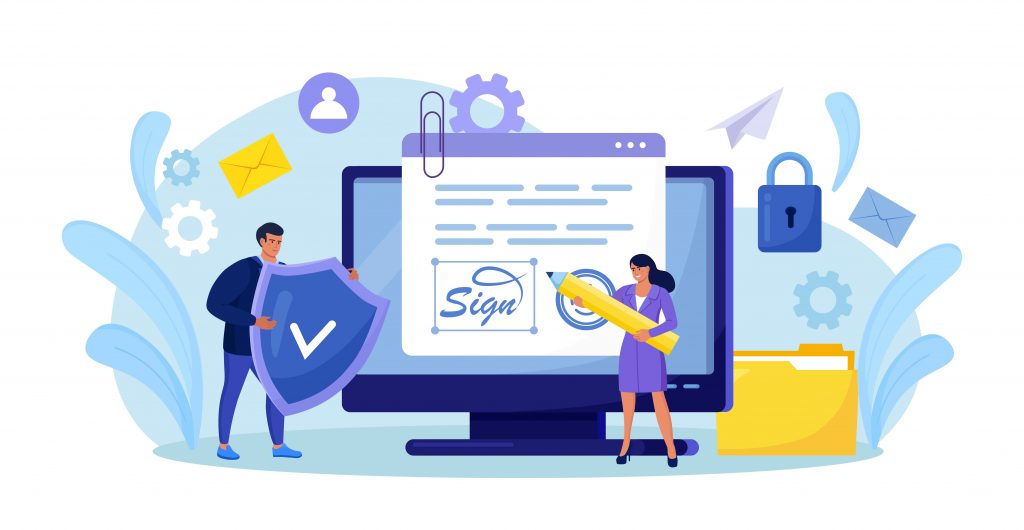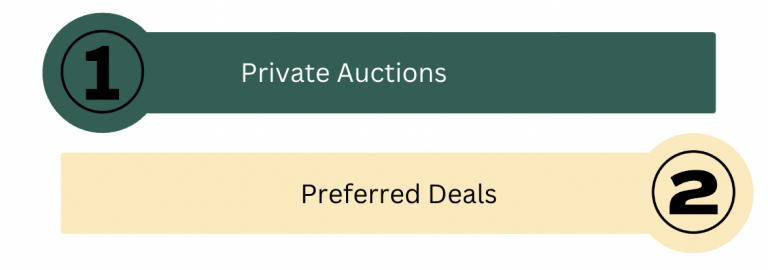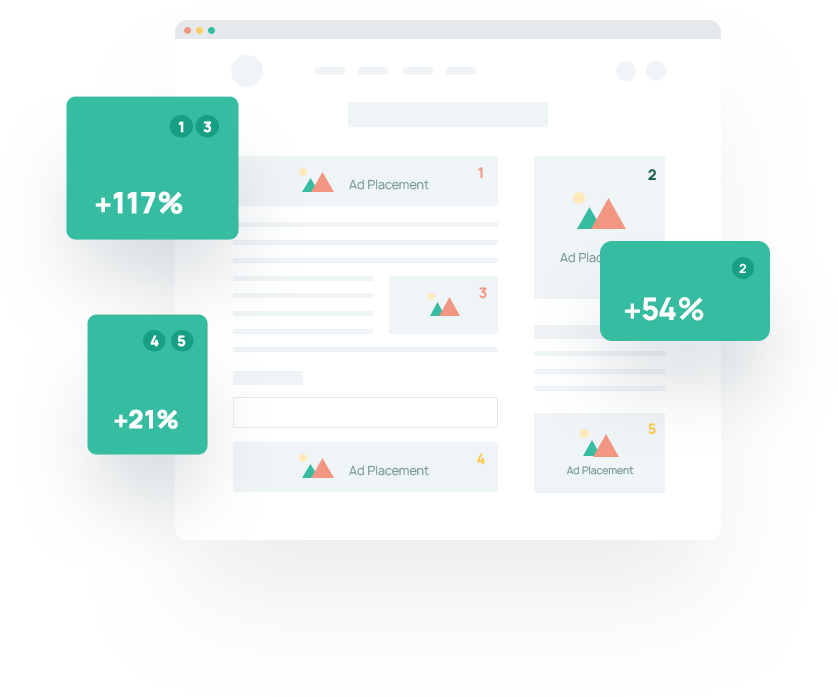You may have heard a bit about this helpful feature in programmatic ad auctions and deals, but what is deal ID?
Deal ID is a unique number, usually about 19 characters long, used in ad tech and programmatic advertising auctions, direct deals, and more. The number allows advertisers to identify publishers with terms conducive to their advertising needs or requirements, so they can buy premium inventories easily.
The purpose of these unique numbers is so publishers and advertisers can match depending on their requirements to complete an ad exchange. Each deal ID in programmatic advertising contains programmatic background information concerning the publishers selling the inventory for ads.
The requirements could be the format of an ad unit or a minimum bid price. Deal ID allows buyers and sellers to recognize one another and understand the deal conditions quickly so they can make fast purchase decisions at auctions.
Deal IDs work in different forms of programmatic deals, including programmatic direct deals and programmatic guaranteed deals, but also in some private auctions in the Private Marketplace (PMP). Understanding the different types of ad auctions and how they work can help you.
Programmatic direct deals are more straightforward, with the publisher presenting the inventory they want to sell and buyers bidding or buying the ad space that interests them. Guaranteed deals are a little more open.
For guaranteed deals, advertisers and buyers can see all available ad space and choose what they want freely according to their requirements. Deal IDs are more prevalent in direct deals, as it streamlines the process of matching requirements, but in guaranteed deals, the IDs can help facilitate purchases.
The Deal ID system offers more freedom and control for publishers and advertisers, streamlining the ad buy process to ensure advertisers match with their ideal publishers.
How Does Deal ID Work?
Deal ID works by generating a unique number when the publisher’s server or an SSP creates a deal. This unique number defines the deal, so it’s easy for publishers and advertisers to identify. How deal ID works changes slightly depending on the programmatic ad strategy used. Learn about how Deal IDs work in private auctions and preferred deals.
Private Auctions
In private auctions, the publishers negotiate the terms of the deal, setting a fixed price or price floor in the private marketplace. They send the potential advertiser a proposal using Google Ads manager.
This message may include a bid request or an explanation of the types of adit units available for auction. When the buyer and publisher agree to the terms of the sale, the publisher will generate a deal ID to identify the contract.
Preferred Deals
Preferred deals are less open. They work as a one-to-one selling and buying model. Publishers will sell a fixed amount of ad inventory at a fixed CPM rate on demand-side platforms (DSPs). Each advertiser and buyer will have a unique seat ID that makes them and their requirements for pavements and conditions recognizable to publishers.
When demand partners want to make a deal, they have to wait for the publisher to send over a deal ID on the appropriate platform, which could be DSP, SSP, or ad server. If the advertiser wants to accept the deal, they send the same deal ID to confirm the agreement.

Advantages of Deal ID
Advertisers and publishers can benefit from using deal IDs during programmatic ad auctions and deals. Deal IDs make programmatic ad deals more streamlined and easier. Below are the top advantages of using deal ID during these programmatic ad exchanges.
Control and Flexbility
One of the top advantages of deal IDs is that they give publishers and buyers better control over the deals and terms. Only buyers with a matching deal ID can access a particular publisher’s premium inventory. Using a deal ID, publishers can quickly check for advertisers that meet their requirements, saving them time and facilitating deals much faster.
Enhances Transparency
Deal IDs also enhance transparency. With real-time bidding (RTB) and pre-set requirements, publishers can sell to specific buyers, and advertisers can buy space from particular publishers. And in these guaranteed deals, buyers can see all the ad placement options, so they can get the best placement possible.
More Profitable Deals
Deal IDs can make these transactions more profitable for both publishers and advertisers. Because the specifics of the direct deals are pre-negotiated, publishers can increase their revenue and advertisers can get a higher return on their investment because they can access premium inventory.
The beauty of deal IDs is the wealth spreads both ways, so publishers and advertisers both benefit financially from the system.
Disadvantages of Deal ID
While this unique number sounds amazing, there are some downsides to it. The functionality of deal IDs can be complex and prone to human error. When it comes to these auctions and deals, even the smallest error can be a disaster, so some publishers, advertisers, supply-side platforms, and demand-side platforms avoid the deal IDs for this reason.
More Manual
Traditional programmatic deals are easy and mostly automated, so the process is efficient. But Deal IDs are a more manual strategy, which can take more time and effort.
The manual process of Deal IDs also leaves plenty of room for human error, and sometimes, these mistakes can be massive and difficult to remedy. Sometimes, using Deal IDs can become confusing and chaotic, especially if many ad deals are going on at once.
For massive deals that could generate a lot of revenue, the possibility of human error is too stressful, so people opt for the automated route.
Stifles Communication
Unfortunately, using deal IDs can make communication difficult between publishers and advertisers. When using deal IDs, there are no messages, reasons, or explanations provided to the parties when a deal is not accepted.
If there is a problem with requirements, deals done with a deal ID do not offer the opportunity for communication, which can be frustrating and confusing for both parties involved.
Some people will avoid deal IDs for this reason, but when the pre-negotiated terms are clear, the IDs are convenient. One party may think the existing deal is in order when in actuality, there is a problem.
Conclusion
So, what is deal ID? In simple terms, it’s a unique number that allows ad publishers and advertisers to easily identify one another as suitable matches. In programmatic ad buying, publishers and advertisers both have their own set of requirements, and parsing through all the options is time-consuming.
This is where deal ID comes in, making it simple for publishers and buyers to find parties that meet the requirements. This form of pre-negotiation streamlines both private dealing and open exchange in programmatic ad buying.
With deal ID, publishers and buyers have more control and flexibility than ever and the chance to make more money with the premium inventory. However, the lack of automation in deal ID exchanges leaves room for human error. These human mistakes can be disastrous in some scenarios.
Ad networks offer programmatic ad buying as a convenient option for publishers. Newor Media is a sensational ad network option for publishers.
The benefits of partnering with Newor Media for programmatic ad buying and website monetization include timely responses and assistance, guaranteed payments, high-quality networks, high-yielding opportunities, and advanced technology.
Learn more about programmatic ads or see how much your website could make if you partner with Newor using their handy earnings calculator!
